Los Angeles, Feb. 17 – A new report by GLAAD found that the number of series regular characters with disabilities counted on primetime broadcast TV decreased, down to 2.8% (22 of 775) from a record high of 3.5% last year and 3.1% the year before. The number of characters counted also fell, from 27 to 22. Since Variety VIP+ reports that Americans spent 4.6 hours a day watching video on streaming services and traditional TV in 2021, this representation is vitally important to how people see – or do not see – disabled individuals in society.
“Including a disabled character does not happen by accident,” said Lauren Appelbaum, RespectAbility’s VP of Communications and Entertainment & News Media. “Inclusion of disabled people must be an intentional effort. What we see on screen influences how we act in real life. Thus, when studios make the decision to include individuals with disabilities, they are helping to remove the stigmas that currently exist about interacting with us.”
As stated in the report, “this number falls far below the actual number of those with disabilities in the United States,” as more than twenty percent of people in the U.S. have a disability.
While the numbers in this report are abysmally low, it is important to note that the GLAAD report is based on self-reporting by the networks and content providers. “While the reported numbers have gone down, it also is likely these numbers are underreported, possibly because the industry is not tracking disability internally as much as other demographics,” added Appelbaum. “Even so, the representation of disabled characters on our screens is nowhere near representative of disabled individuals in society today.”
Examining the Numbers in the Report
GLAAD’s 2021-2022 Where We Are on TV Report includes the only analysis of primetime scripted series regulars on broadcast networks of characters with disabilities. Largely known for tracking the number of LGBTQ+ characters on broadcast and cable networks, as well as streaming services, the Where We Are on TV Report also tracks racial, gender and disability inclusion on television.
GLAAD looked at 775 series regular characters expected to appear on scripted broadcast primetime programming broadcast on ABC, CBS, The CW, FOX and NBC. Counts are based on original scripted series premiering or which are expected to premiere a new season in primetime between June 1, 2021 and May 31, 2022 and for which casting has been announced or confirmed by networks.
The report finds that NBC once again leads the broadcast networks in representing disabled characters, counting 14 regular characters (10% of the network’s series regulars) who have a disability this season. However, this is a sharp decrease from last year’s high of characters.
However, many of these characters are played by actors without the disabilities the character has. One authentically cast character among the 14 characters counted is Izzy Harris (played by Zyra Gorecki), an amputee character on Le Brea, which also has been renewed for next year.
While the report includes a recurring gay character on Ordinary Joe who is living with HIV, the report does not include series regular John Gluck, a 13-year-old actor who plays the lead character’s son. Gluck, who is a wheelchair user, has muscular dystrophy in real life, and his character is a wheelchair user in the series. The lack of inclusion of Gluck points to the reality that studios may not have known enough to share all its disabled characters to GLAAD for inclusion in this report.
The report includes four series regular disabled characters from ABC, while the CW has two. However, none of these actors have the disabilities their characters represent.
While CBS and FOX each reported just one regular character with a disability, both of these characters are cast authentically: CBS’s NCIS: Los Angeles’ Hetty Lange (played by Linda Hunt) has dwarfism and Christopher Diaz (played by Gavin McHugh) on FOX’s 9-1-1 has cerebral palsy.
There is an increased representation of characters with nonvisible disabilities, including addiction, anxiety, cancer, depression, diabetes, learning disabilities, and PTSD. For example, ABC’s The Rookie adds another dimension to the character of Officer Tim Bradford (Eric Winter), a highly regarded police officer, when viewers learn he has a learning disability. By including this casual inclusion of disability, ABC primetime helps viewers understand that this is a common disability and helps lessen the stigma around having a learning disability and seeking assistance in learning in different ways (in this case, an audio book).
Spotlight on Cable and Streaming
The report also looks at LGBTQ+ characters with a disability on cable and found five (four percent), a decrease from eight characters and seven percent. These include two characters who are amputees (AMC’s The Walking Dead and Showtime’s Yellowjackets), but neither of these actors are amputees themselves. In addition, Sam from Freeform’s Single Drunk Female
and Rue on HBO’s Euphoria have addiction.
One character on cable to highlight is Maribel from Showtime’s The L Word: Generation Q, who has muscular dystrophy. It is important to note that Maribel was authentically cast, and is played by Jillian Mercado. Also on Showtime, but not included in this report’s count, is Dexter: New Blood, which featured bilateral above knee amputee Katy Sullivan as Ester. Also worth noting is that one of Dexter: New Blood’s writers was Marc Muszynski, a writer with low vision.
The report also finds five disabled LGBTQ+ characters in streaming originals, which is up from one last year. However, while the report tracks LGBTQ+ regular and recurring characters on scripted original series on Amazon, Apple TV+, Disney+, HBO Max, Hulu, Netflix, Paramount+, and Peacock, it does not yet track those with disabilities that are not also LGBTQ+. No other report tracks this data either.
According to Variety VIP+, streaming now accounts for more than half (51.5%) of all original series in the U.S., up from 12.9% share in 2016.
“While broadcast TV remains far behind in disability representation, there is a lot more disability-inclusive content to see on streamers, which are not yet tracked in any formal report,” said Tatiana Lee, RespectAbility’s Senior Associate for Entertainment Media. “Anecdotally speaking, streamers are more likely to cast authentically as well.”
Several examples include Disney+’s Hawkeye, which includes a deaf character Maya, authentically played by Deaf actress Alaqua Cox, as well as Clint Barton (Hawkeye) as a Hard of Hearing character; HBO Max’s The Sex Lives of College Girls, which features Lauren “Lolo” Spencer, who was diagnosed with ALS when she was 14 years old; and Netflix’s YOU, which cast Ben Mehl, who has low vision, to play blind character Dante.
Increasing Disability Inclusion in Television Leads to Real-Life Results
With Hollywood striving to boost diversity and inclusion, opening the inclusion umbrella for America’s largest minority – the one-in-five Americans with a disability – is the right thing to do as well as economically smart given that the disability market is valued at more than $1 trillion.
Gail Williamson is a talent agent for Kazarian/Measures/Ruskin and Associates (KMR), leading their Diversity Department, seeking out the right roles for talented actors with disabilities. KMR’s clients include Lauren “Lolo” Spencer, as mentioned above.
“While the report shows a decrease in series regular roles for characters with disabilities, I believe with more platforms and diversified content, the number of working actors with disabilities has greatly increased,” Williamson said. “From my experience, I predict the number of actors with disabilities playing series regular roles will increase in the coming seasons. Perhaps the greatest accomplishment that is not measured is the number of recurring, supporting and co-star roles that are now being cast with actors with disabilities. In the past, actors with disabilities were usually only invited into the casting office for roles when a lead character had a disability and that disability moved the story forward. Today we get calls at KMR for talent with disabilities to play smaller roles that have nothing to do with their disability. We are finally starting to see ‘full inclusion’ as it is in life. This also gives the actor with a disability the opportunity to grow in their craft as all other actors do, coming up the ranks, rather than just getting looked at for lead roles, that they are sometimes not prepared for since they haven’t had the supporting role experience. We are definitely making progress.”
People with disabilities lack adequate access to healthcare, education, and employment opportunities. Depictions of disability should be focused on the abilities and contributions of people with disabilities, not just the disability. Additionally, even simple inclusion in crowd scenes is important. This is especially critical for the 22 million working-age Americans with disabilities, of which only one-in-three has a job.
Diversity and inclusion processes that include disability are needed inside networks and studios so authentic portrayals become natural and consistent. A Lab for entertainment professionals with disabilities is aiming to do just that. Organized by the nonprofit RespectAbility, the 2019, 2020, and 2021 Labs already have helped place more than 30 alumni into jobs at studios that hosted the group, including Nickelodeon, Paramount Pictures, Sony Pictures Entertainment, and The Walt Disney Company. Others have found work in writers’ rooms for Netflix’s Mech Cadet, CW’s 4400, and Showtime’s Dexter, among others, while several have had films featured at festivals such as SXSW and participated in additional career track programs including with Film Independent and Sundance Institute.
“Progress toward authentic disability representation on the screen begins behind the camera,” said RespectAbility board member Delbert Whetter, a veteran film executive and producer who is deaf. “Only by including people with disabilities in the spaces where creative and business decisions are made, will we begin to see concrete results on screen. We’ve noticed a perceptible uptick of studio interest and enthusiasm for disability representation, which makes it all the more essential that the right tools and authentic points of view are available to creators, writers and producers who can benefit from them.”
The entire report may be downloaded from GLAAD’s website.

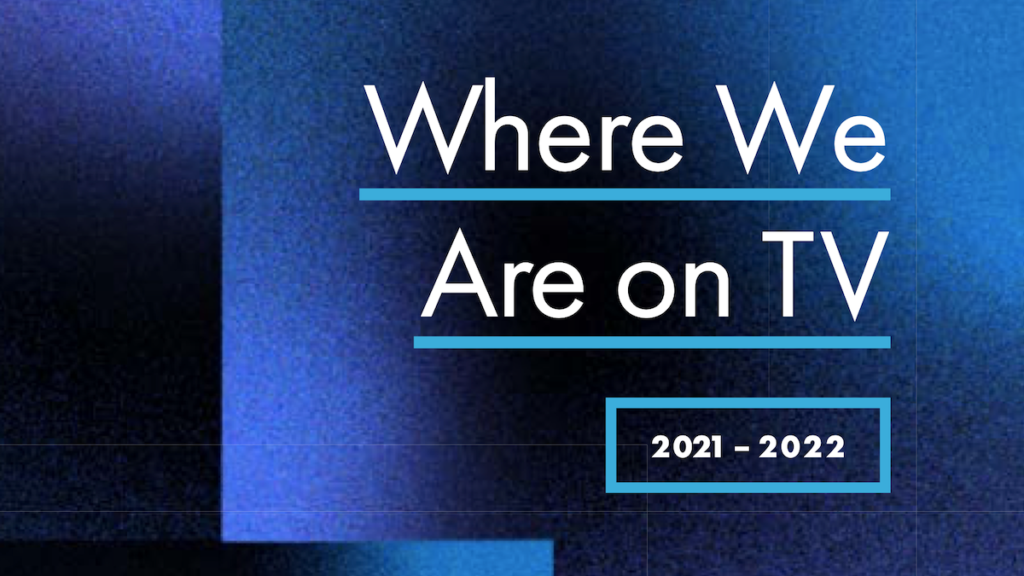
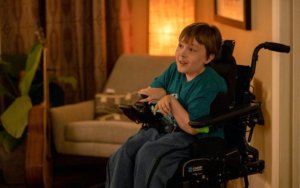

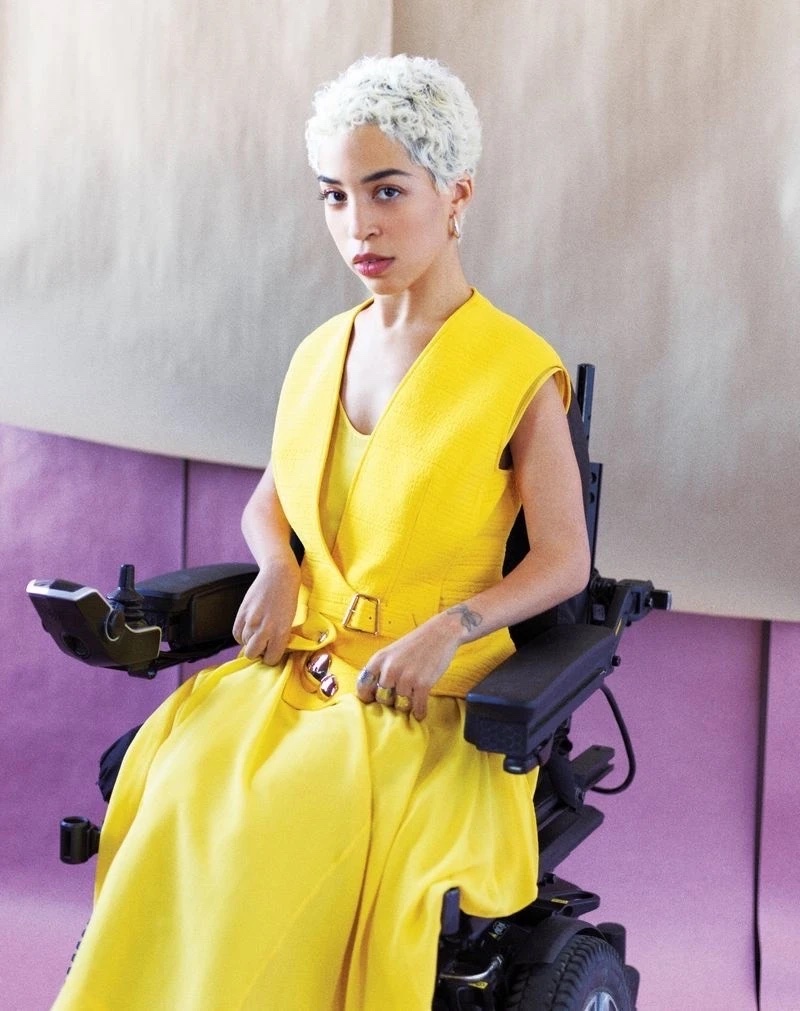

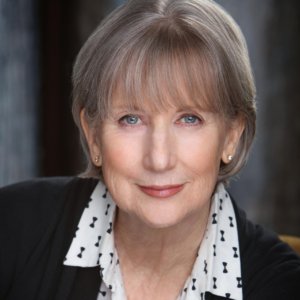

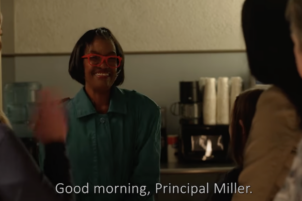
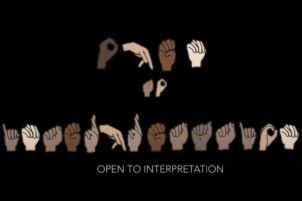





I would like to add that I was a series regular on The CW last year (the 4400) and I am actually disabled. We also had a guest star who was authentically hearing-impaired.